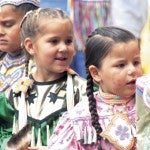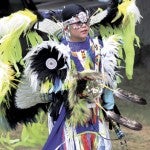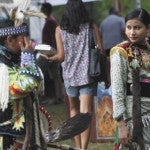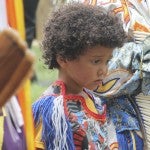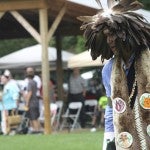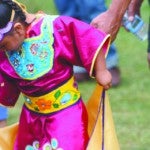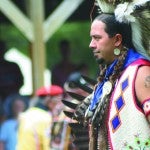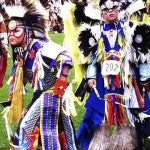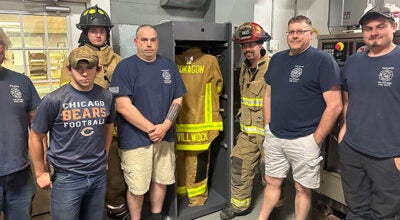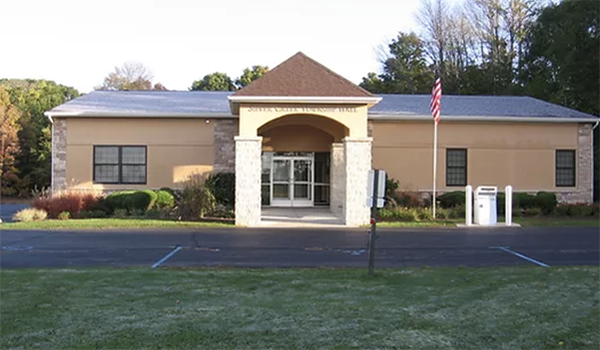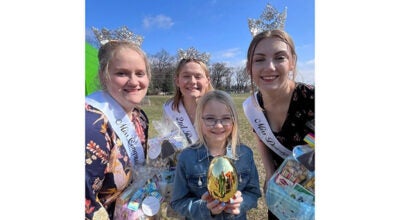Kee-Boon-Mein-Kaa pow wow draws thousands
Published 1:26 pm Monday, September 2, 2013

Thousands gathered for the 28th annual Kee-Boon-Mein-Kaa pow wow in Dowagiac during Labor Day weekend. Leader Photo/AMBROSIA NELDON
The Potawatomi people enjoy telling non-natives who have trouble pronouncing their language that Kee-Boon-Mein-Kaa literally means, “I have quit picking huckleberries.” Ironically enough, the pow wow takes place during Labor Day weekend, a holiday non-native Americans also reserve as a break from work.
Each year, the Pokagon band of the Potawatomi, made up of approximately 4,500 tribal citizens in the lower Great Lakes region, host the Kee-Boon-Mein-Kaa pow wow. This year, thousands of people from various backgrounds attend the event to celebrate and learn about the natives’ culture.
For the last 28 years, the Pokagon pow wow has been a tradition at Roger’s Lake in Dowagiac, but it hasn’t alw
ays been so big.
Howard Hall, a volunteer at the event for many years, remembers when the Kee-Boon-Mein-Kaa pow wow was only a small group of Pokagon natives gathering to celebrate their culture. Now, the event is free and open to the public.
Hall volunteers at a handful of other pow wows, but says the Pokagon gathering isn’t quite the same.
“This one is different mainly because of the size,” said Hall. “I think people keep coming back to this one because they offer a good, friendly atmosphere.”
Hall’s contribution to the Kee-Boon-Mein-Kaa pow wow was selling fifty-fifty tickets as a fundraiser.
“I like to volunteer here because the Pokagons do a lot for the community,” he said. Hall noted that the tribe donates a lot of the money they earn at the pow wow to giving back to youth in the area through events like youth camps.
The event was free and open to the public, and spectators from a wide range of backgrounds visited the pow wow to enjoy many amenities. During the Labor Day weekend, spectator camp out at the old Pokagon Band of Potowatami’s Rodger’s Lake campground, watch natives dance in traditional regalia, buy handmade crafts from vendors and traditional Native American food.
There were also several teachings held throughout the two-day pow wow where spectators could learn to make Native American crafts such as corn husk dolls and dream catchers. There were also several meet and greet sessions so community members could meet Billy Mills, the second Native American to receive an Olympic gold medal.
Adele Altimon, a vendor who has sold handmade crafts at the pow wow for “four to five years,” said that she feels that participating in events like the pow wow is beneficial to the preservation of the native culture.
“[The government] didn’t keep records of us. They didn’t want us,” said Altimon, who contains the full-blood status of Native American. “Older generations were ashamed to admit that they were native. Younger generations want to learn about their heritage.”
A large number of the dancers and spectators at Sunday’s festivities were indeed children.
Altimon said that out of the several pow wows she sells her crafts at between Dowagiac and her home in Ontario, Canada, the Kee-Boon-Mein-Kaa pow wow is one of the largest and contains some of the friendliest people.
Though this year’s pow wow just ended Sunday, coordinators are already planning next year’s festivities.
- Thousands gathered for the 28th annual Kee-Boon-Mein-Kaa pow wow in Dowagiac during Labor Day weekend. Leader Photo/AMBROSIA NELDON


